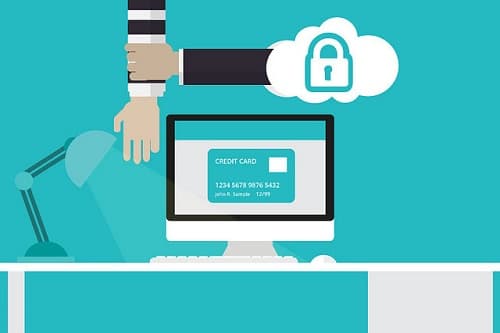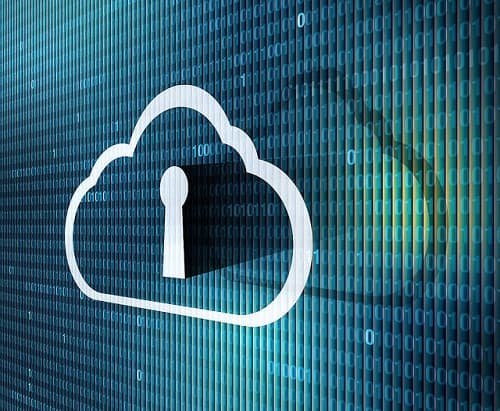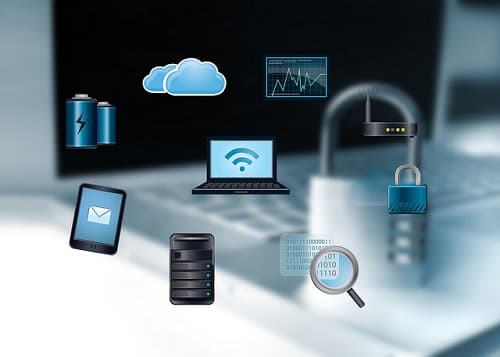How Data Must Be Secured In A Company
In the past, perhaps about 20 years ago, hacking was done merely to show off, but now hacking is done with the sole intent of stealing money. To make money, hackers would do anything, steal private data, hack people’s financial accounts, credit card details, sneak into online bank accounts, you name it, they do it. Once the data security of your company is compromised, it is exactly like sleeping in your house with the doors and gates open. Digital thieves can come and take whatever they want, especially client data and personal records, financial records, and you will not get even a hint.
You cannot emphasis the importance of keeping your data secure in mere words, because it is as important as your life.
Data can be secured in multiple ways. Here are some of them:
USB security to prevent data
USB storage technology is one of the biggest ways to store data, but you can be under the threat of unauthorised use as well. How do you protect your USB from theft? Your USB flash drives are under the constant threat of:
- Sensitive data leakage
- Infection from viruses and malicious software
Installing USB security technology would protect sensitive data leakage and potential threat of unauthorised usage. Most of them would even give you real-time monitoring access as well. When activities of malicious intent are detected, preventive measures would be instantly activated, even to the point of automatically detaching USB devices. In case you are not physically present when a malicious attack happens, the security technology would automatically respond.
Protects threat from insiders
Threat from employees is a serious issue in any company. While present employees may be spying on your data, there might be former employees who might try to get back at you for firing them. If they have sensitive data in their hands, and if they are in a vicious mode then they might bring your company great harm. The most dangerous thing they can do to you is sell your important data to your competitor or hack the system and steal data. It is important to protect your networks and databases. Sometimes insider threats can be difficult to detect and employees can use circumvent measures to avoid detection, and since they are already inside the network, the extent of harm can vary.
To protect your data from insider and ex-employee threats, you must have a good system that can monitor, record and automatically block all suspicious sessions. It must remote lock your system and log off instantly. In the event of any security breach, your IT team can perform accurate IT forensics so they will know the ‘who’, ‘when’, ‘why’ and ‘how long’ of security breach.
Signing a non-competition agreement
Employers can ask employees to go into non-competitive agreements before they join the company and this usually comes into effect after the employee leaves the company. Employees who sign this will have to protect trade secrets. Certain courts however do not support non-competition agreements because it curtails the employee’s right to earn a livelihood after he leaves the company.
Strong firewall
Your database must be strong, in order to not let anyone breach your database, you must have a strong firewall built into it. A strong firewall can control the traffic that is going into the database and out of it.
Antivirus protection
Always get the latest and the best anti-malware and antivirus software for your network. Keep updating it and since they are the last line of defence, they must be kept really strong. Ensure preventive actions are taken against all vulnerabilities because it is the business and private endpoints that are the most feasible hacking points for criminals. This is because these areas are the most dynamic with the maximum number of programs and plugins. Though this is the one thing that makes it difficult to protect, that is where you must attach great importance, as well.
Data encryption
Don’t forget to encrypt your data at any time because if ever data gets stolen, it would be all in black and white to the wrong people.
A monitoring team
No security technology can be unequivocally secure in any company. So you must have a full-time monitoring team to check the safety of secure data, especially client-related data.
Plug data leaks by adding security layers
Cloud-based file sharing system has really put security system to the docks. With Google Drive, Dropbox and the like, there are more holes than you would ever care to dream. You must add content controls protection layers, tracking tools and deep analytics to plug security leaks and workflow holes. Additionally, you can address security concerns by adding watermark to the files and videos, limit file-sharing and viewing, printing and thus reduce the chances of unauthorised access.
Securing your laptops
Since portable devices are prone to be lost or mishandled, the security levels in them must be really high. Encrypt your portable devices and make sure sensitive data is protected. For smartphones, you can put in encryption software, password protection and remote wiping capabilities.
Conclusion
When you monitor your devices regularly, you can get the best out of data-leakage prevention tools. You can configure them to check for any discrepancies that arise in the form of credit card numbers, information related to your business and any specific piece of code that may affect your data and affect a breach. Only by steady monitoring will you be able to keep your data protected and from falling into wrong hands.
Interesting links about the topic:
Data-Security Measures You Can Opt To Secure Business
How To Secure Sensitive Data Of Your Business
Pictures: Flickr.com/ Blogtrepreneur | Blue Coat Photos

The author: Reema Oamkumar is engaged as a thought leader at Software-Developer-India.com which is a part of the YUHIRO Group. YUHIRO is a German-Indian enterprise which provides programmers to IT companies, agencies and IT departments.




Leave a Reply